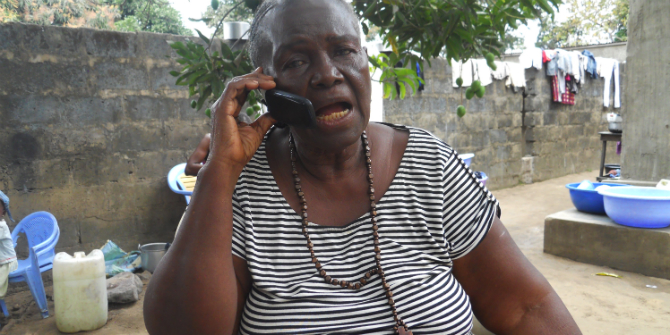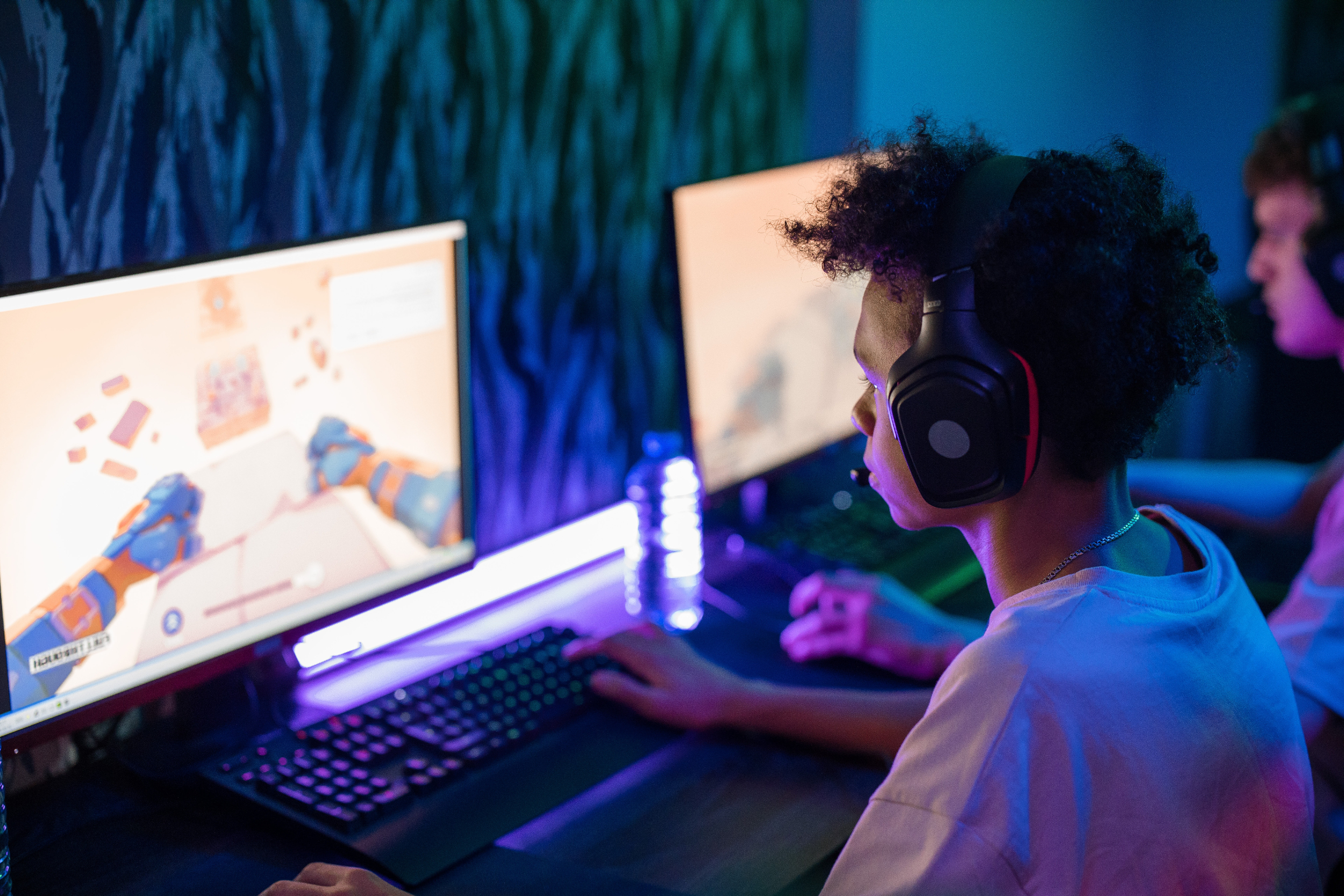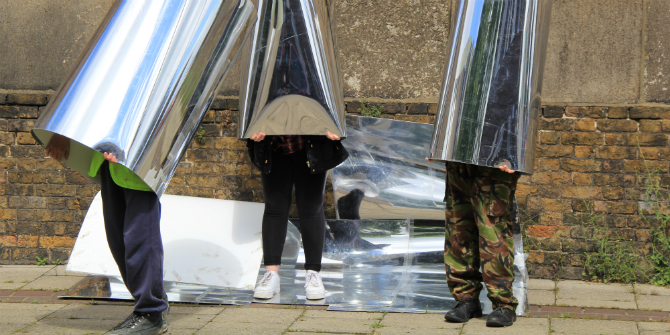 Credit: Imagine Sheppey Fast Forward
Credit: Imagine Sheppey Fast Forward
 Thinking about the future can be daunting, especially for those young people who need to decide about their careers and commitments after college. Giulia Carabelli and Dawn Lyon, research associate and principal investigator of the Imagine Sheppey Fast Forward project, University of Kent, discuss what they discovered through exploring how young people living on the Isle of Sheppey (Kent) imagine their futures.
Thinking about the future can be daunting, especially for those young people who need to decide about their careers and commitments after college. Giulia Carabelli and Dawn Lyon, research associate and principal investigator of the Imagine Sheppey Fast Forward project, University of Kent, discuss what they discovered through exploring how young people living on the Isle of Sheppey (Kent) imagine their futures.
Imagine Sheppey Fast Forward
Funded by the Economic and Social Research Council (ESRC), Imagine Sheppey Fast Forward is the latest in a series of projects investigating how young people on the Isle of Sheppey imagine the future, and is part of a larger research programme, Imagine. This arts-inspired experimental project (which began in October 2013 for one year) asked residents aged 16-21 to imagine the future in selected spaces on the island according to the categories of ‘work’, ‘leisure’ and ‘dwelling’.
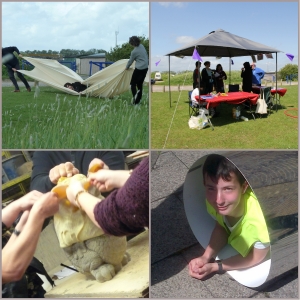 They worked with the artist group Tea, undertaking improvised performances in the selected locations by intervening in the landscape with different materials and objects, thereby creating a powerful sensorial experience of transformation. As seen in the images to the right, they played with fabrics in the wind, built a tent, made cement statues and rolled in gigantic mirror tubes on the pavement of Blue Town High Street.
They worked with the artist group Tea, undertaking improvised performances in the selected locations by intervening in the landscape with different materials and objects, thereby creating a powerful sensorial experience of transformation. As seen in the images to the right, they played with fabrics in the wind, built a tent, made cement statues and rolled in gigantic mirror tubes on the pavement of Blue Town High Street.
The images of this process were presented to another group of young people studying at a local college in order to trigger their imaginations and thinking about their own futures. Here are some of the results of the project, which could help parents to better reflect on their own roles in accompanying their children towards the future.
What if you could see the future?
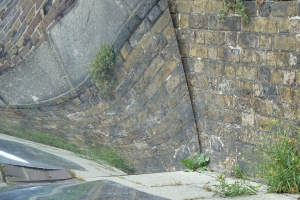 The image on the left is of a warped wall that was presented to the young participants to discuss what they would do if they could ‘jump ahead’, have a peek at their future lives, and then return to the present; only a few stated that they preferred to live day-by-day, without knowing what was coming next.
The image on the left is of a warped wall that was presented to the young participants to discuss what they would do if they could ‘jump ahead’, have a peek at their future lives, and then return to the present; only a few stated that they preferred to live day-by-day, without knowing what was coming next.
One said that he wanted to see whether his decision to attend university had paid off, “because you need a job to earn money and then you can start a family … your life won’t be open without a job and with a lot of material limitations and also you won’t have a house and you won’t start a family.” Others also seemed worried about making decisions in the present that could become a kind of ‘bad investment’ for their future.
Perhaps more than the mere fear of taking action they were accounting for the additional risks present in making mistakes in times of economic and social uncertainty – the area where the project took place has a higher-than-average rate of unemployment, and the responses from the participants show their awareness of this social context in their frequent references to issues of economic security.
Who do you navigate the future with?
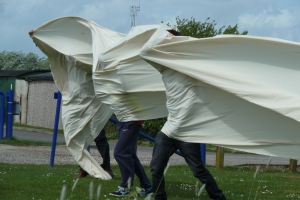 The right-hand photograph of individuals walking together or pulling in different directions was presented to initiate a discussion about how the future might be navigated. Most of the participants said they relied on family and friends for emotional support and advice in moments of need.
The right-hand photograph of individuals walking together or pulling in different directions was presented to initiate a discussion about how the future might be navigated. Most of the participants said they relied on family and friends for emotional support and advice in moments of need.
Family members were especially present in their imagination as those who would accompany them toward their futures. The majority also wanted to start their own families, have their own properties, and secure jobs as a means of fulfilment – and crucially, a space in which they might be valued. Some said they would prefer to travel and enjoy life before settling down, but most seemed more inclined to start their own family in the not-too-distant future.
The family is, however, both a place of fear as well as hope – some feared losing ageing family members as well as hoping to create their own families.
Overall, the majority expressed the need to be with someone in their future. For those who imagined a prosperous working future for themselves as a priority, this success implied autonomy, and they expressed tensions between belonging and freedom.
Imagining the future
The project was helpful in shedding light on how young people engage with the planning, and imagining, of their futures. Financial difficulties and insecurity certainly affect the ways in which the future is planned, with a need to be careful not to squander opportunities and resources. Yet the respondents displayed generally positive attitudes because they felt part of affective networks such as the family, their communities or friends.
Now it would be interesting to hear how parents imagine the future….
NOTES
All photographs were taken during the Fast Forward Workshops on the Isle of Sheppey, May 2014.


